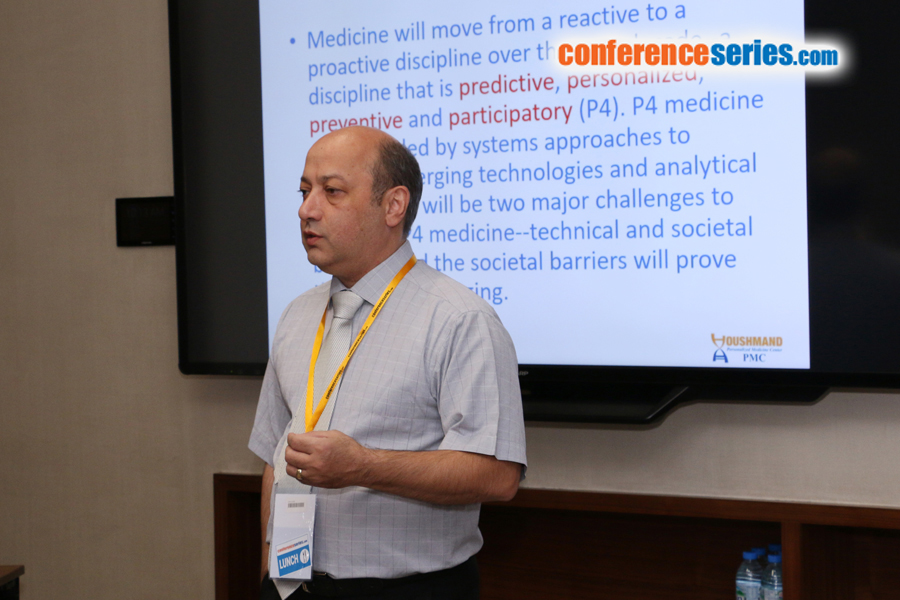
Seyed Massoud Houshmand
National Institute for Genetic Engineering and Biotechnology, Iran
Title: Medical genetic diagnostic test methods in clinical practice (advantage and disadvantage of each method)
Biography
Biography: Seyed Massoud Houshmand
Abstract
Analysis of genetic materials like Nucleic acids, chromosomes, proteins and metabolites in order to analyse the possible heritable disease-related genotypes, phenotypes, Karyotypes, mutations for clinical purposes is termed Genetic testing. Genetic testing has grown from a position specialty for rare disorders to a broad scope of applications for complex disease and personal use. Detection of cause of the disease in a blood or other tissues sample can lead to a diagnosis, possible prognosis and prospective therapy treatments.Applications of clinical genetic testing is in medical disciplines, as well as newborn screening for extremely penetrant disorders; diagnostic and carrier testing for genetic disorders; prognostic and pre-symptomatic testing for adult-onset and complicated disorders; and pharmacogenetic testing to guide individual drug dosage, choice and response. Over the years, a variety of detection of structural and chromosomal variation through cytogenetic (karyotyping) and molecular cytogenetic (FISH, CGH-array, Cish) tests and indirect testing, targeted allele-specific mutation detection, gene-specific Sanger sequencing with molecular biology techniques (PCR-RFLP, ARMS, Dot Blot, Sequencing, MLPA, Western, Norden and southern blot, RealTime PCR, PGD, etc.) have been utilized in clinical diagnostic laboratories. Genome-wide SNP microarrays and whole-genome and whole-exome sequencing techniques has revolutionized the field of clinical molecular diagnostics. Here, we review the development of molecular diagnostic approaches and some of the most commonly used assays prior to different kind of techniques in this area and mention advantage and disadvantage of each technique. The choice of detection method used in the analysis of gene mutations depends on a variety of factors and can range from laboratory to laboratory. Sample volume, the spectrum of mutations in a given gene of interest and equipment investment required can all play a role in what type of assays a molecular diagnostic laboratory chooses to perform. Decisions concerning genetic testing should be primarily based not solely on the analytic accuracy, accessibility and price of the check, but on the clinical utility as well, as well as the sensitivity, specificity and interpretability of results.


